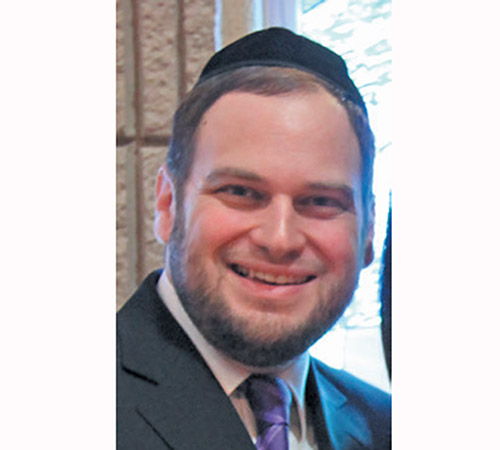
A few years ago I found myself davening at a busy shteibel and noticed what seemed to be a unique door that was a bit of an eyesore at the shul’s entrance. While the face of the door was pretty standard, the space in the door frame was completely covered with a rubber shield that expanded when the door was opened. I tend to be curious about these types of things, and after davening concluded I decided to ask around about the background to the main door. I was told, in response to my inquiry, that the contraption was installed as a result of an accident that occurred several weeks earlier. A child was running through the shul, and as he ran out the door he slammed it behind him. Unbeknown to him, another child had placed his hand in the frame of the doorway a second earlier. The door slammed on the child’s hand as everyone watched in agony before immediately rushing to the aid of the hurt child. The child’s hand was severely damaged and he needed surgery to repair the broken bones. Just writing these words makes me wince and feel discomfort.
The explanation for my feeling of discomfort is recalling what it must have felt like for that child. This is one level of feeling and understanding someone else’s pain. It’s indirect, however—I have conjured up in my mind and imagined what it must have been like for the child. The second level of understanding is direct empathy. The story reminded me of when I witnessed with my own eyes a very similar situation. I was standing and talking with a friend who didn’t realize that his hand was placed behind him in the frame of the door. As someone else left the room and closed the door, my friend began writhing in pain. I immediately felt my own discomfort upon witnessing his distress. There are occasions when we see someone get injured, or express an emotion and we feel their pain, or mirror their emotion to some level in our own body physically, or at the very least in our mind. Scientists have found that Hashem has wired the human body for empathy. This particular wiring was discovered by scientists in the 1990s as mirror neurons, which are found in the motor cortex of the brain. These neurons cause us to feel in reaction to what we observe. Scientists found through FMRI (functional magnetic resonance imaging) that certain neurons in the motor cortex of the brain light up when seeing an emotion of someone else, hence the name mirror neuron.
The Chidushei Harim, the first Gerrer Rebbe, explains that there is an important message to be learned from the makah of choshech, darkness. The greatest consequence of darkness is that one cannot see one’s neighbor. The result is that one lacks the ability to ascertain the welfare of another. We are left in the dark without the ability to feel the pain of someone else. For many who have fallen, the care and concern of another can be the deciding factor in their ability to rise to their feet once again. Rav Soloveitchik, zt”l, questions why a shul is referred to as a beit knesset, a house of gathering, and not a beit tefillah, a house of prayer, or a beit midrash, a house of learning? The Rav answers that a shul is a place in which we gather and see others. We have the ability to observe how they are doing and to daven for them. An important lesson for us to glean from this insight is the opportunity that we are afforded to empathize, expressing concern and love for other people. To daven for someone who is out of a job, for someone who is sick, for someone who is having personal problems is a magnificent chesed and a form of empathy. To offer a smile or a helping hand among other forms of empathy can truly help a person see the light during a period of darkness in their lives. We may be really surprised at how valuable we can be by just mirroring the feelings of others that we are fortunate to see before us.
By Rabbi Eliezer Zwickler LCSW
Eliezer Zwickler is rabbi of Congregation AABJ&D in West Orange, New Jersey, and is a licensed clinical social worker in private practice. Rabbi Zwickler can be reached at [email protected].













